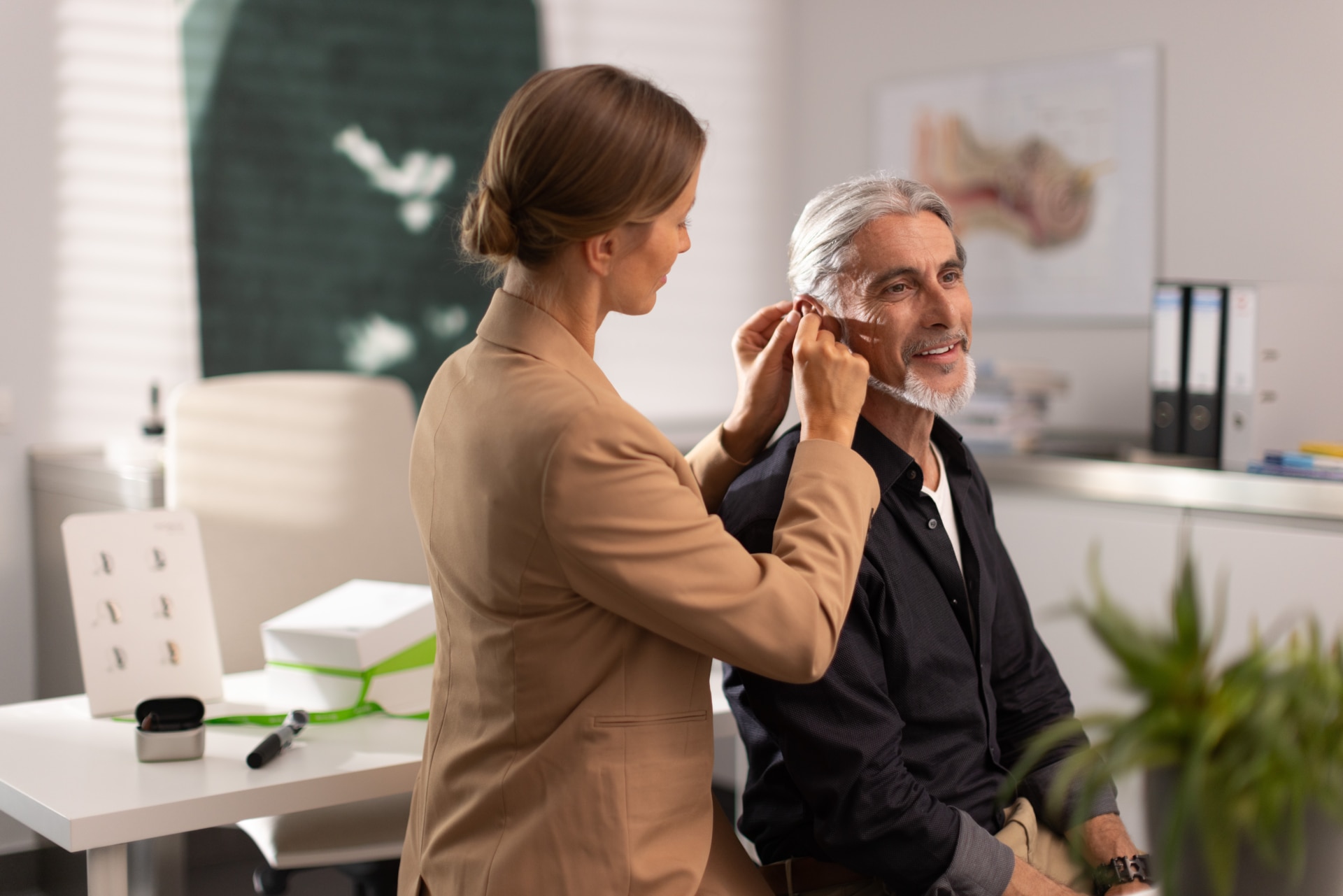Choose another country or region to see content specific to your location.
AI hearing aids designed to help people hear better in the real world.
Phonak Infinio Ultra
Infinio Ultra delivers exceptional sound and speech understanding in noise.*1 Powered by adaptive AI precision to help you hear your world more clearly. Every step of the way.
Choose the best hearing aid for your lifestyle

Infinio Ultra R
The best sound for you. No matter the situation. Anytime. Anywhere.
Real-time AI precision automatically adapts to your environment, boosting speech understanding in noise1 for exceptional hearing wherever life takes you.

Infinio Ultra Sphere
Any voice. Any direction. Always clear.
Exclusively featuring Spheric Speech Clarity 2.0 to deliver a new level of clear speech2 throughout your day. No matter how noisy your world gets.

Virto™ R lnfinio
Extraordinary sound. Custom precision.
An incredibly personalized hearing experience, expertly crafted for your unique ear in a discreet, ultra-comfortable design. Hearing that looks as good as it feels.

Phonak hearing aids
Discover Phonak’s advanced hearing aids, engineered to support every level of hearing loss and enhance your listening experience. Explore our solutions today.

Take the online hearing test
An online hearing test offers a quick snapshot of your hearing health from home. While not a full diagnosis, it can help you decide if it’s time to see a specialist.

Finding a hearing care provider
Finding a hearing care provider is the first step toward better hearing and tinnitus relief. They’ll evaluate your hearing and help you choose the right solution for your needs.

Next-Level Hearing with AI
Stay ahead in a rapidly evolving field with our AI-powered solutions and educational resources.
Footnotes
*For adults with mild to severe hearing loss.
** The maximum battery runtime is determined by battery condition, hearing loss, environmental sound classification, streaming usage and activated feature set.
1 Wright, A. et al. (2025). AutoSense OS 7.0 improves speech understanding with highly rated sound quality for challenging listening environments. Phonak Field Study News. Retrieved from https://www.phonak.com/evidence.)
2. Raufer, S., Kohlhauer, P., Jehle, F., Kühnel, V., Preuss, M., Hobi, S. (2024). Spheric Speech Clarity proven to outperform three key competitors for clear speech in noise. Phonak Field Study News retrieved from https://www.phonak.com/evidence
3. Based on Phonak internal data. Contact claims@sonova.com if you are interested in more information.
The Bluetooth® word mark and logos are registered trademarks owned by Bluetooth SIG, Inc. and any use of such marks by Sonova AG is under license.





